
School of Area Studies, Sociology, History, Politics and Literature (SASSHPL)
In the School of Area Studies, Sociology, History, Politics and Literature (SASSHPL), we have a relentless curiosity about the world and its people.
Our subjects are wide-ranging but tied together by a common aim. They seek to better understand humanity through its past and present, to fathom implications for its future. We help our students, researchers and academics thrive as global citizens who can make sense of the world, figure out their place in it, and collaborate with others to help make it a better place.
Our culture is built on accountability, fairness, integrity and transparency. We value equality, inclusion and authentic professional and personal development.
Our courses reflect our interdisciplinary expertise in research, teaching and learning, and ensure all of our students realise their potential and ability to shape their careers after study.
Alongside expert academics driven by passion for their specialisms, our students learn how to anticipate change coming – socially, politically, culturally, economically. They graduate with qualifications, skills and perspectives attractive to employers across an enormous range of careers.
The University of Portsmouth is the top modern university in the country for Area Studies*
What is area studies?
Area studies is the name given to the collective disciplines of international relations, history, politics, sociology, economies, cultures, languages and geography across specific regions of the world.
Whether its investigating Europe's relationship with Russia, exploring the history of the American civil rights movement or studying the causes of conflict in West Africa, area studies helps us decipher the ways in which the world works.
Teaching
We offer undergraduate and postgraduate courses, both on campus and via distance learning. We're incredibly invested in our students and in delivering innovative, research-led courses that help them achieve their goals.
Our academic and professional staff are research active and bring their ever-evolving fields of knowledge to each new cohort they teach. They also have close ties with our local community — including employers — so we can offer our students opportunities for work placements, internships, and work-based learning.
We support our students every step of the way, from establishing core skills in the first year to developing specialisms and fostering their interests and independent ideas. Through a range of assessment methods, from the traditional essay and presentations to podcasts, creative assessments and portfolios, our graduates embark on customised careers with real-world impact.
Our teaching areas
Explore the undergraduate and postgraduate degrees we offer within the following areas.
English literature and creative writing courses

History, politics, international relations and international development courses
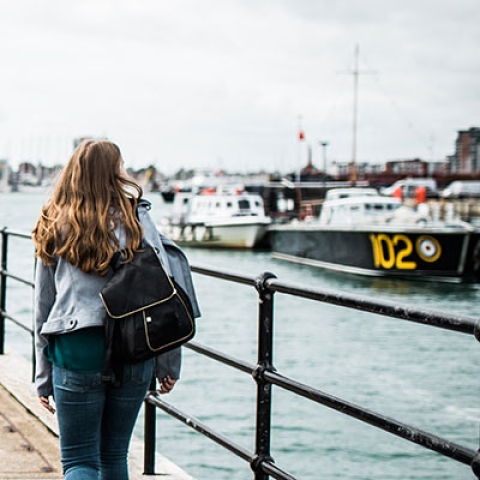
Sociology courses
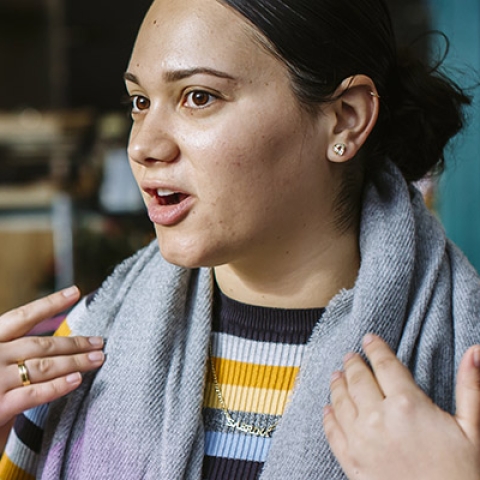
What's it like to take a placement year?
Hear from some of our placement year students - Finlay, who took a placement at NBC Universal, Anastasia, who found a place at St Vincent College, and Charley, who took a role at Castle View Academy.
Find out about their experiences and hear what advice they have to give other students.
Finlay: I've loved every moment of my placement. It's probably one of the most fantastic years I've ever done in my life, probably one of the best things I've ever done.
Emily Parry: The school covers area studies, sociology, history, politics and literature. There are a number of different placement opportunities that are based locally or nationally around the UK, covering lots of different sectors and areas. So there's something there for everybody.
Finlay: Before university, I was always somebody that really didn't want to rush university. I wanted to try a placement year out, which was something that I'd love to do, and here we are today at NBC Universal. I got very, very lucky with it, but it's great.
Emily Parry: One of the misconceptions about placements and work experience for humanities students is that it would be very restricted on the kind of things that they can do.
Finlay: As a politics student, obviously I do love politics, but it's the other interests you have outside of politics. I love my films, I love my TV series, so I work in an environment selling content that I love.
Anastasia: Since about year ten, I knew I wanted to be a teacher. The work placement has definitely put it in perspective that it’s still what I want to do and it means that I don't have to go into a PGCE placement completely unaware of what I have to do. It gives me the experience of what a teacher actually needs to do and what their role is in a college.
Charley: Teaching is something I find quite natural to do. It wasn't really to do with my degree, but I found it was quite easy to interlink the two. So I was able to run a politics club here and it was really quite inspiring to see how enlightened the students were and how knowledgeable they were about current day events, and went from there, really.
Emily Parry: What I love about placements is seeing the students when they come back and you can see the development in them of the confidence that they've built and their ability to communicate and work as part of a team.
Charley: Before, I really struggled with public speaking. So standing in front of an audience is not something I would initially choose to do, and for some people, standing in front of 30 children is even more scary than standing in front of adults.
Finlay: University of Portsmouth really helped me with confidence and the ability to speak, which I've then brought into NBCU where I present in front of my managers once a month.
Charley: Having that sort of exposure was really, really important to me. For students who want to do a placement, I would just say go for it.
Anastasia: It’s a brilliant opportunity to put yourself in a workplace environment with loads and loads of support.
Finlay: Just put everything into it because it really is a year that's really helped me feel a lot more confident going into my final year of university.
Emily Parry: It's the best feeling when a student gets that placement because you know the opportunities that's going to open up for them with their future career.
Partnerships and collaborations
SASSHPL has school-wide partnerships with the University of Halmstad, Sweden and the University of Caen, France, with links for both undergraduate and postgraduate students to study and research overseas.
We draw on the expertise of a diverse range of local and national organisations to enrich the teaching experience we offer, including Lloyd's Register Foundation, Friends Without Borders, Portsmouth Historic Dockyard, the Portsmouth Museum and Records Service, and Portsmouth Abuse and Rape Counselling Services (PARCS).
We also have ongoing Holocaust education collaborations with Mayville High School, Portsmouth High School, the D-Day Story, and Portsmouth City Council.
Research
Our research covers multiple disciplines and aligns with the University’s strategic research themes of democratic citizenship, health and wellbeing, sustainability and the environment, security and risk, and future and emerging technologies.
We're proud of our research culture, which we've developed through a strong commitment to scholarship and publication. We offer postgraduate research opportunities on Area Studies, Sociology, History, Literary Studies and Politics and International Relations.
We've worked with a range of organisations through our research projects including the Imperial War Museum, Forceswatch, ichange21, Vegan Society, Friends Without Borders, Connect Futures, and Journeys Festival International.
Our research areas
Explore the work we're doing across the research areas that sit within the School of Area Studies, Sociology, History, Politics and Literature (SASSHPL).
Area studies
We're exploring international relations, history, politics, economies, cultures, languages and geography across specific regions.
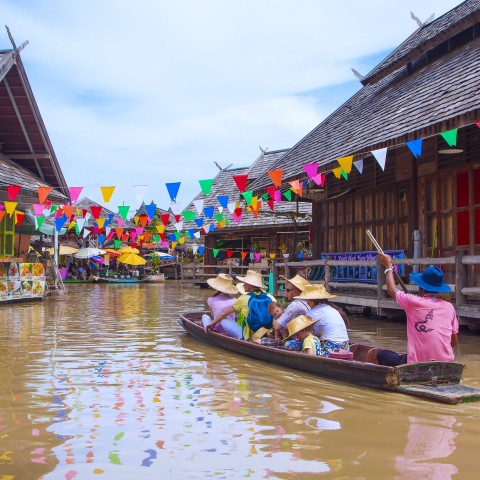
Identities and inequalities
We're asking questions around who we are, who is different from us, and who we want to be, to challenge structural violence and reduce inequality.

Sociology of culture
We're probing the link between culture and power, confronting societal issues, and looking at the ideological function of culture in naturalising them.

Social research methods
We're investigating the different methods, tools and techniques for studying social phenomena and generating information and data about all aspects of social life.

Social theory
We're drawing on classical and contemporary social thought, philosophy, political economy, social anthropology, and history to explain and analyse social processes, issues, and concerns.

History
We're understanding our society through the study of experiences, culture, values and activities of people throughout history.
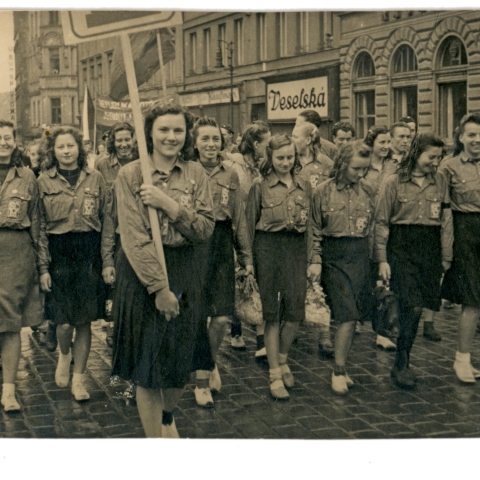
Politics and international relations
We're exploring pressing issues in politics and international relations and working with organisations, governments and individuals to find solutions.

English literature
We're researching how literature provides insight and understanding into the lives of other individuals, communities and cultures.
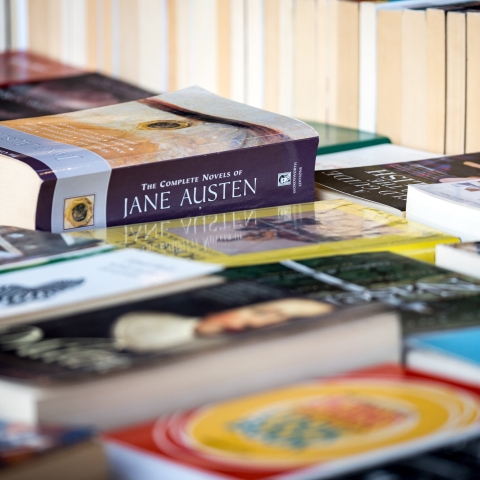
Our research centres
Much of our exceptional research takes place within the following cross-disciplinary research centres.
Centre for European and International Studies Research
We're researching topics such as citizenship, race, language across borders, social theory and transnational politics.

Centre for Studies in Literature
We're researching the history and culture of the English speaking world through literature.

Centre for Port Cities and Maritime Cultures
The interdisciplinary Centre for Port Cities and Maritime Cultures focuses on the past, present and future importance of urban-maritime cultures and communities within a global context.
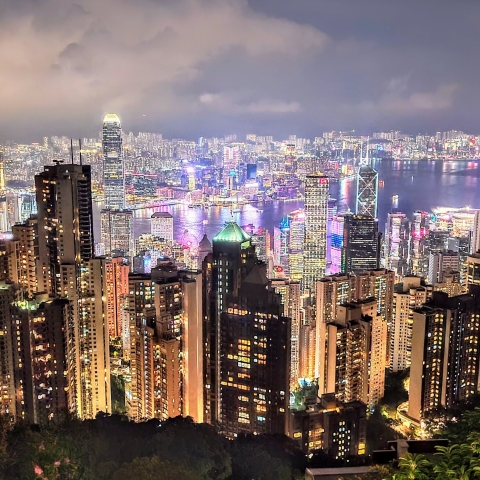
Research project highlights
-
Transnational Civil Society Research Project
We're analysing how NGOs and civil society actors influence regional and global politics.
-
Port Towns and Urban Cultures
We're researching port towns as sites of social and cultural convergence in partnership with the National Museum of the Royal Navy.
-
The West Africa Peace and Security Network
We're conducting collaborative research into how academia and policy making can solve peace and security challenges in West Africa.
-
Portsmouth Literary Map and Writing Literary Portsmouth blog
We're exploring Portsmouth's rich literary heritage and contemporary literature scene through an interactive map and blog.
-
Citizenship, 'Race' and Belonging
A collaborative project which focuses on issues of citizenship, identity and migration in various regions.
Our staff
SASSHPL news and blogs
Latest news
View all news
British Academy awards nearly £1 million to University of Portsmouth study

Theatre is changing the way communities view donkey welfare

University of Portsmouth to host #MeToo expert panel in celebration of International Women’s Day

UK aid failing to meet objectives and support developing countries

Portsmouth first post-92 university to secure editorship of flagship political journal
Latest blogs
View all blogs
What these new landing barges can tell us about China’s plans to invade Taiwan

Professor Brad Beaven discusses The Devil's Highway - his new book about London's sailortown

Deepfakes of children: how the government can get to grips with them

Victorian Christmases were both thrifty and indulgent – try these DIY projects and yours could be too

Podcast focuses on shipping and energy transitions: from sail to steam and to the green technologies of the future
Explore our faculty
Explore the other schools and departments that make up our faculty of Humanities and Social Sciences.
School of Criminology and Criminal Justice
Read more about the School of Criminology and Criminal Justice, and explore the teaching and research activities that take place within it.

School of Education, Languages and Linguistics
Explore the School of Education, Languages and Linguistics, and learn more about the teaching and research activities that take place within the school.
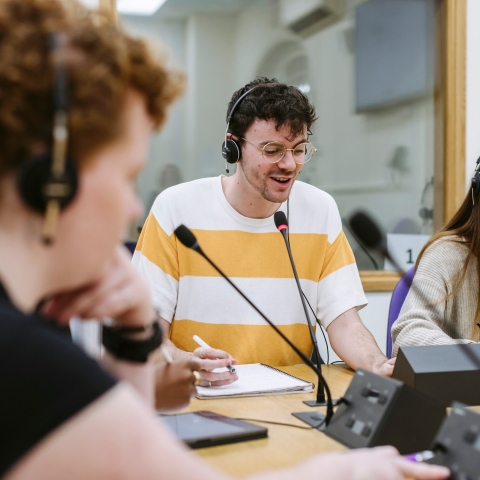
Faculty of Humanities and Social Sciences
Explore more about the Faculty of Humanities and Social Sciences, teaching and research activities taking place across the faculty's four schools and institutes.



